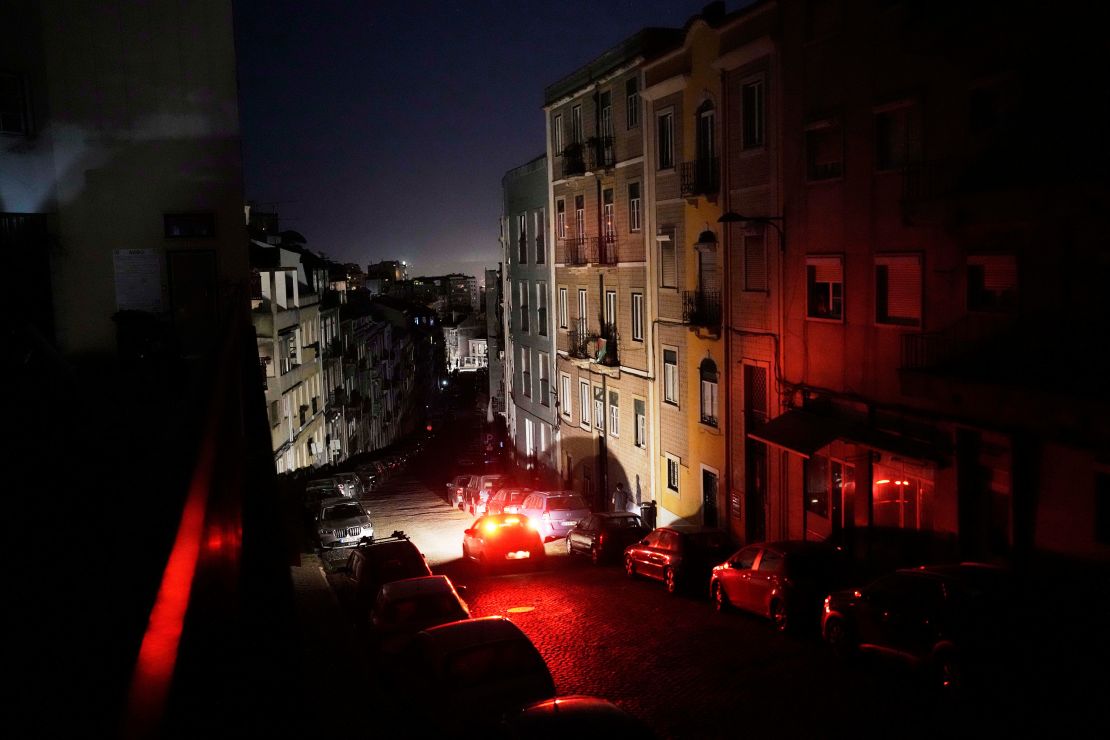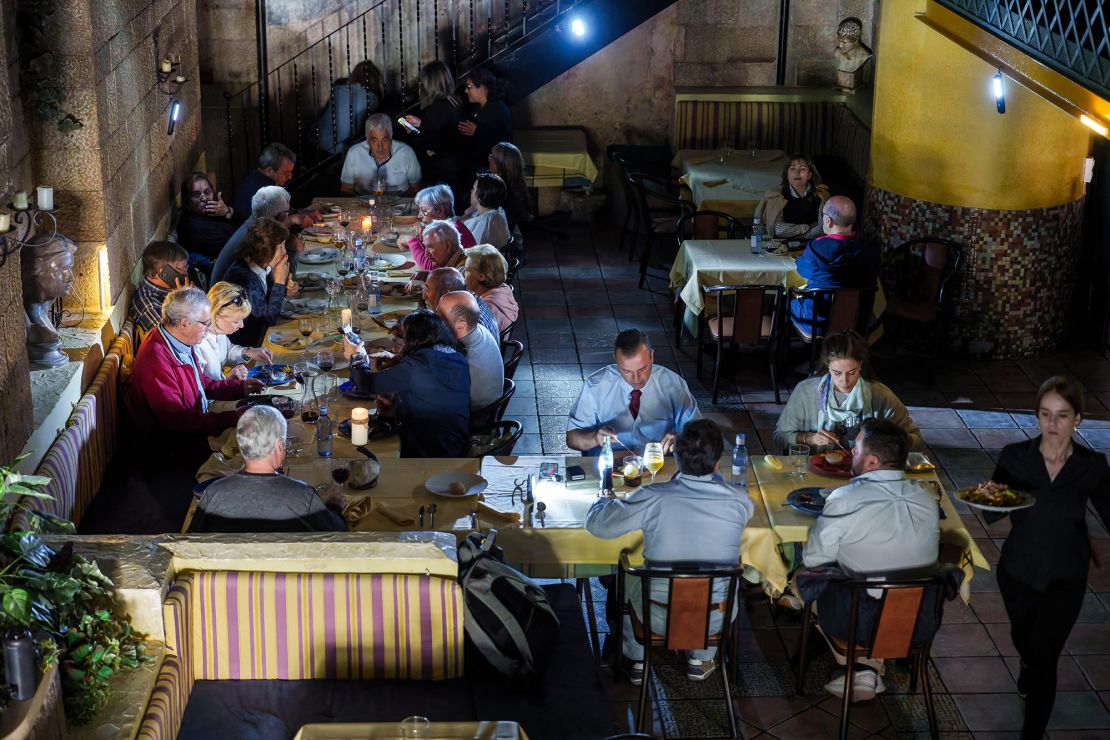CNN
—
Luis Ibáñez Jiménez was driving on a highway in east Madrid when Spain lost power.
“Suddenly, there were no traffic lights,” the resident of the capital told CNN. Cars piled up, and nobody had right of way. “I was stopping so that people could pass… I saw a massive bus coming, and I had to accelerate a lot to go past it,” he said. “It was a bit of a jungle.”
Jiménez had just seen his entire country’s electrical supply wiped out in a matter of seconds. The lights went out in cities, villages, airports and train stations; computer screens and payment terminals shut to black in an instant. Confusion and concern coursed through Spain and Portugal. And for officials in the two countries, a race was sparked against the setting sun.
It was a battle the neighboring nations would lose. Several hours would pass until power was meaningfully restored; by nightfall, families gathered in candlelight and exchanged stories from a remarkable Monday.
“It was definitely one of the weirdest days of my life,” said Jiménez, a 29-year-old chief operating officer for a vocational training provider.

The outage was baffling, and a day later, remains unexplained. In the space of five seconds, 15 gigawatts of energy suddenly dropped from Spain’s supply, Spanish government sources told CNN – equivalent to 60% of the electricity being consumed at the time – and the entire Spanish grid collapsed as a result.
Virtually all energy had finally been restored by Tuesday morning, but confusion is still pulsing through Spain. “The investigation into the causes is ongoing,” a government source said. “All hypotheses remain open, and more details will emerge in the coming hours.”
Chaos, confusion and cash payments
Alanna Gladstone, a 40-year-old film editor, had landed in Portugal’s capital, Lisbon, on a flight from New York hours before the outage. She checked into her Airbnb and took a nap; by the time she woke up, the technology that the country takes for granted had gone dark.
“I didn’t know what was going on,” the New Yorker said. She went out looking for supplies, with two euros and 10 US dollars to her name.
“There was a bit of a pandemonium, and a bit of a frenzied energy,” Gladstone told CNN. Supermarkets were closed, so lines snaked through the street into fruit markets, where shopper after shopper was told they couldn’t pay with cards.

It took some time before Spanish and Portuguese people understood the scale of what was happening. “People were asking: is this hacking from Russia? Is this an act of terrorism?” Gladstone said.
Ellie Kenny, a holidaymaker inside Lisbon’s Humberto Delgado airport, said hundreds of people were stood in the dark in lines, with no air conditioning or running water. Shops were only accepting cash, she told CNN.
Hours later, with the power still out and the working day ending, people were adjusting to a strange new reality. Police officers directed traffic with hand signals. Major cities were clogged with traffic, and pavements heaved with busy crowds, trying to find a way home.
Jiménez drove home – carefully. “People were surprisingly polite and well coordinated,” he said. “But the whole city was blocked by around 4 p.m.” His journey, which usually takes 30 minutes, lasted two hours.

Gladstone had another problem: She returned to her apartment with shopping, but the electronic keypads that allowed access to the building and to her unit were down. After banging on the main entrance to no avail, a neighbor found a way into their own apartment, and welcomed her in for the night.
Madrid’s firefighters carried out hundreds of “elevator interventions” across the city on Monday, its Emergency Information Office said; members of Spain’s Civil Guard carried an elderly woman in a wheelchair to her apartment on the sixth floor, the agency said.
By early evening, with the sun sinking and power still out for most of Spain and Portugal, misinformation swirled online and in person. “The rumor mill was just going crazy,” she told CNN. A false theory circulated that all of Europe’s power was down, and with phone and internet access intermittent, it was impossible for many to check whether that was true.

Spain’s Prime Minister Pedro Sánchez urged people to use phones “responsibly,” to make calls only when necessary and to keep them brief to ease strain on the system.
By early evening, with the sun sinking and power still out for most of Spain and Portugal, camaraderie became commonplace. “People took the opportunity to ‘get on it’… You could see people drinking beer everywhere,” buying rounds until the batteries in card payment machines went flat, Jiménez said. “All the terraces were full.”
In Lisbon, the lights came on around 10:30 p.m. By then, Gladstone’s neighbors had became her friends. “We spent the night discussing life, and how strange everything is,” she said. “They made food by Mag-Lite and flashlight, and we drank wine.”
“The kindness of strangers never ceases to amaze.”
